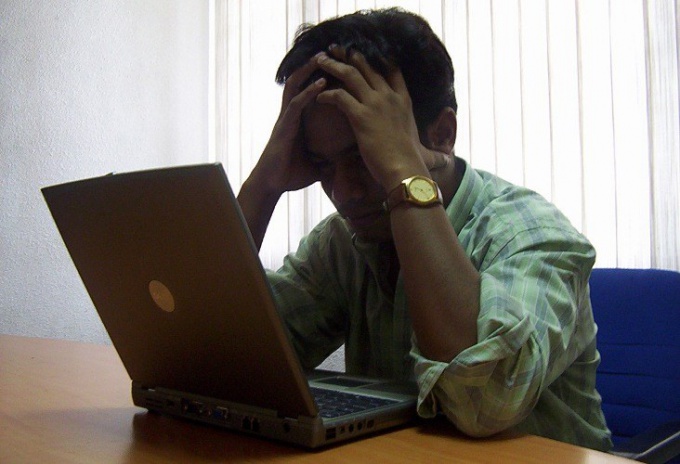Overheating the CPUand can be caused by too large a load and insufficient cooling. First, check the cooler – take off the computer side panel, then turn on the computer and see does cooling CPU fan. Remember that the cooler can be switched on immediately, but after heating the CPUand to a certain temperature.If the cooler is rotated, the cause of bad cooling of the processorand may be a layer of dust on the fins of the radiator. Turn off the computer and a soft brush to clean the radiator cooler. Can use during this operation the vacuum, but do it very carefully, without the tube of a vacuum cleaner in close proximity to wires and computers.In that case, if with cooling all is in order, the cause of the overheating processorand must be sought in its loading processes. Open "task Manager" (Ctrl+Alt+Del). In the bottom of the window you will see information on the total download of processora, and in the column "CPU" to see which processes are more likely download it. If some process takes the main part of the power of the CPUand find out its name, what program it belongs to. In that case, if the process name tells you nothing, and you can't find its executable file, use the program AnVir Task Manager. This is a very useful program that allows you not only to view the list of processes, but also to see the location of the executable files and their keys startup.The process that loads the system must be stopped. If it belongs to the program you want – for example, antivirus or app that you are constantly working, look for their other versions. Normally running the antivirus can sometimes load the system up to 90 percent or more, but it lasts a very short time. One of the reasons for the excessive load of the processorand may be running a large number of unneeded programs. Many applications when installed register themselves to startup and begin execution whenever you turn on the computer, which increases download time and slows down your computer. To check the startup list using the msconfig command. Open the "start – Run, type msconfig and click OK. In the opened window select the tab "startup" and uncheck any unused programs. Again click OK.It is highly desirable to disable unused services: "start – control Panel – administrative tools – Services. The list of services subject to the outage, find it in the Internet.
Why the CPU is overheating
Working for a modern fast computer gives genuine pleasure. But sometimes the user is surprised to notice that the computer is not so fast as before, and the CPU starts to overheat.

Is the advice useful?